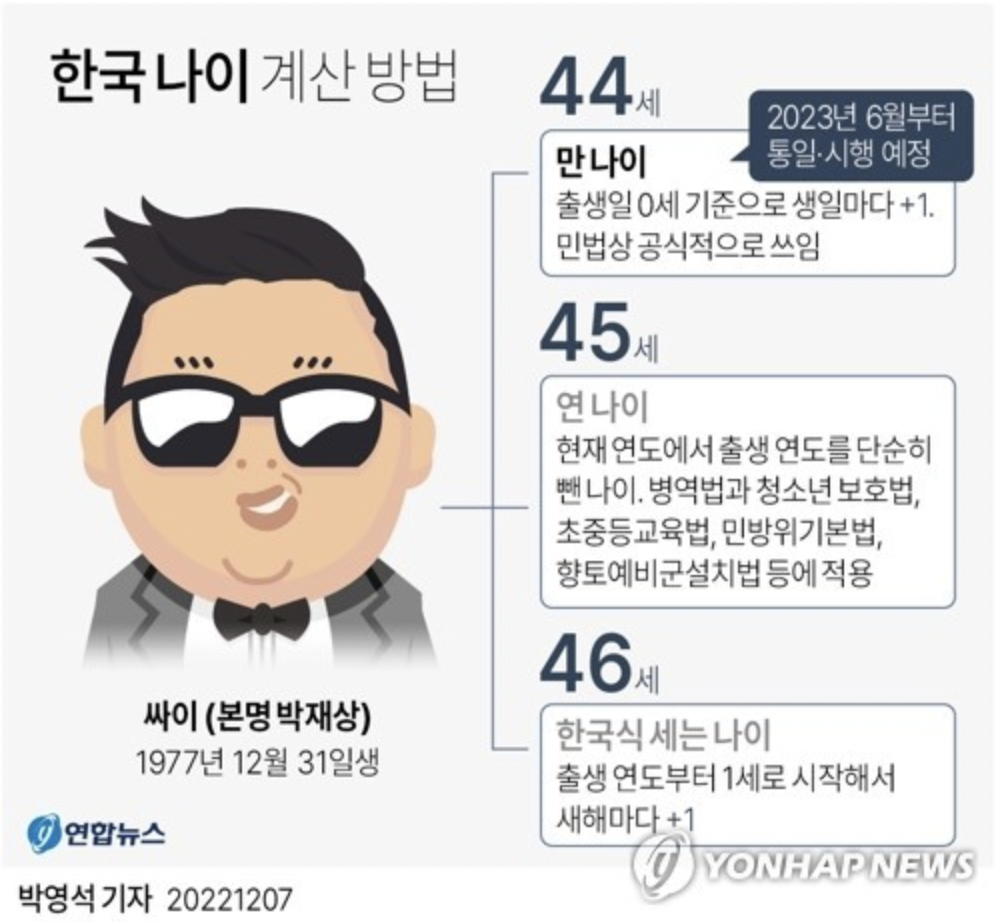Korea will start using the "western" age system this upcoming year, and an article about the transition showed something interesting that I had never heard of before, and surprisingly, several of my coworkers apparently hadn't heard of before, either.
The "yeon" age counting system
Dispatch showed an infographic using Psy (yes, of Gangnam Style fame) as an example of somebody who has 3 different ages depending on the counting method.
 |
| Three types of Korean age counting. Image: Dispatch |
Psy is:
- 44 in "western" age (based on his actual birthday)
- 46 in "Korean" age (based on everyone gaining a year at Seollal 설날)
- 45 based on something called "yeon" age.
Apparently this "yeon" (연) comes from 年 which can mean "year". Such as in 연말, "end of the year". Namu Wiki says this is just a simple quick-reference type of age measurement that gives a good approximation of someone's age when you don't know (or don't need to care about) their actual birthdate. It can be used in school, military, etc. It's just a simple formula:
Current year - birth year = "yeon" age
Psy was born on December 31st, so in western age he is still currently 44 and will turn 45 in just a few days here. But since he would have been 1 in 1977, then 2 a month or so later passing Seollal of 1978 and continuing on, he is now 46 in Korean age after Seollal this year. Or we can just take this year (2022) and subtract his birth year (1977) to get 45.
While usually not a legal way of measuring age, it does seem to have specific use cases. In fact it seems to have been used in the Youth Protection Act to account for the fact that using "western" birthdays could lead to awkwardly unnatural age gaps. Think for example, about the legal gray areas that could come up even in western countries when a high school senior couple is fooling around but one is 18 and one is 17.
Update 2023-01:
The Korean (of AskAKorean) wrote about the implications of using this system for military service, and how certain 17-year-olds could potentially be drafted. He argues that the update to the laws is simply to tie up loose ends like this a legal context that already uses the "만" (western) age standard anyway.
Anyway I just thought this was interesting. I'm all in favor of Korea switching to the 만나이. It can let me introduce myself as a little younger than I currently am. Thumbs up!
Comments